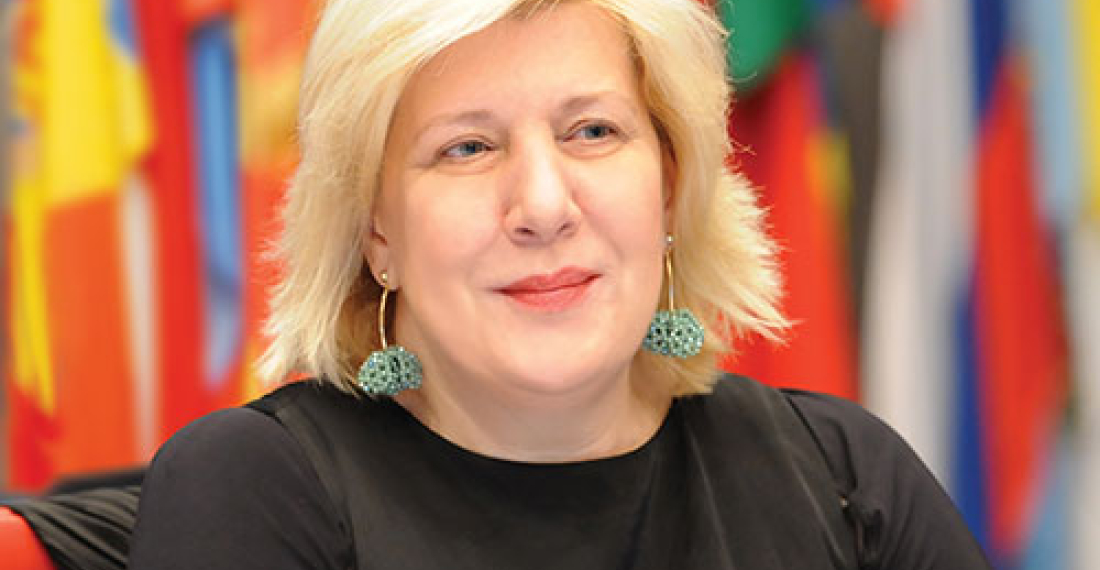On March 27, the Council of Europe Commissioner for Human Rights, Dunja Mijatović, issued a statement calling on the Georgian government to “fully respect” its human rights obligations as a Council of Europe member state, “including with regard to the protection of the human rights of LGBTI people,” in response to the ruling party’s initiation of two draft constitutional laws on “family values and the protection of minors.”
The statement says:
“I am concerned about the present political discourse in Georgia, as illustrated by the announcement made by the Georgian Dream Party of their initiative to amend the Constitution and to adopt a new constitutional law on ‘Protection of Family Values and Underaged Persons’. It is reflective of entrenched harmful stereotypes and prejudice against LGBTI people which still prevail in segments of Georgian society, including some politicians, and is capable of having a strong, negative impact on the human rights, safety and well-being of LGBTI people and defenders of their rights. It also represents the political manipulation of LGBTI-phobia in the run-up to elections, which I have previously condemned, and which should have no place in a democratic society, based on the rule of law and respect for human rights of everyone.
Having noted once again that LGBTI people continue to be the target of hate crimes and pervasive discrimination in Georgia, as well as the regular occurrence of LGBTI people being denied their right to peaceful assembly, I have repeatedy called on the Georgian authorities to commit to a zero-tolerance policy and practice towards all forms of discrimination, and incitement to discrimination and violence, against LGBTI people. In recent months, I have followed the increasingly stigmatising rhetoric used by some politicians to undermine the legitimate work of human rights defenders and civil society in Georgia.
I therefore call on the Georgian authorities to fully respect their human rights obligations, as a member state of the Council of Europe, including with regard to protecting the human rights of LGBTI people and ensuring an enabling environment for the activities of civil society and human rights defenders. I urge all politicians in Georgia to resolutely denounce the use of LGBTI-phobia or any other discriminatory rhetoric in electoral campaigns.
I stand in solidarity with all those who advocate for and defend the human rights of every member of Georgian society, including LGBTI people, and who work for a peaceful country and society committed to equality and the human dignity of all.”






